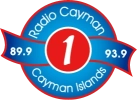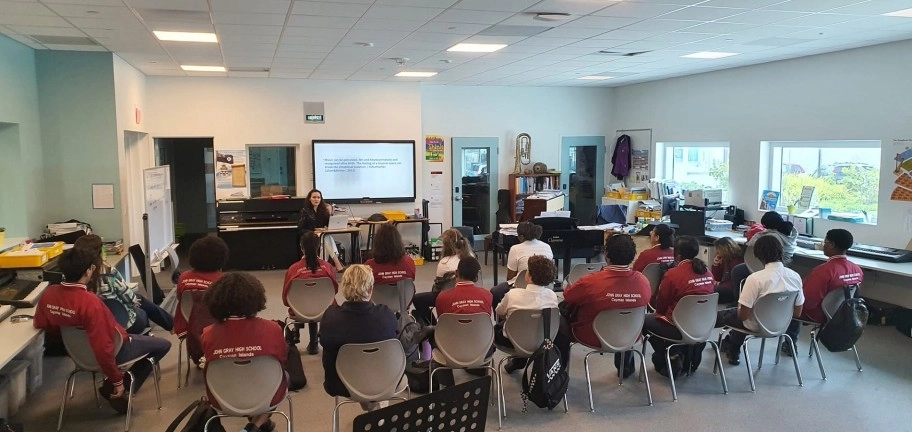Music Therapist Shares Knowledge in Cayman
Music Therapist Shares Knowledge in Cayman
When members of the SoNoRo music festival came to the Cayman Islands earlier last month to play a series of four resoundingly successful concerts in collaboration with Cayman Arts Festival, they brought with them a pianist who shared knowledge instead of her musical talents.
As the founder and president of the Romanian Music Therapy Association, Angelica Postu looks at the benefits of music beyond the simple enjoyment of listening to it. She currently works as a music therapist at the Charité University Hospital for Psychiatry in Berlin, where she routinely sees the therapeutic power of music.
“Once admitted to the hospital, a visit to the music therapists is often the first stop for patients”, Postu said. “They are very troubled patients, many experiencing the worst time of their lives,” she said.
Many of the patients have trouble expressing themselves and the goal of music therapy is to make a connection between the patient and therapist through music, which can be received through listening or created by the patient along with the therapist. The “active” creation of music - which is often improvised and can include singing, humming or playing an instrument - helps establish a non-verbal communication between the therapist and patient that is based on trust.
“Sometimes it’s the first time a patient is touching an instrument,” said Postu, adding that the sounds created by the patient don’t have to be harmonic. What is important is that creating any kind of music anchors the patient in the moment, giving the patient the opportunity to make a connection with the therapist.
“The biggest motto of music therapy is that there is no right or wrong,” she said. “Sometimes we can create chaos on the instruments.” Conversely, some of her patients have musical experience. One of her past patients, who was in rough shape and looked as if he had been homeless, asked Postu if she would play Beethoven’s “Moonlight Sonata” for him.
“When I did, he listened and tears started coming from his eyes,” she said. “Later, he started playing it on the piano himself and we were able to create a connection.”
Success of music therapy can be measured in numerous different ways depending on the age and situation of the patient. For example, with school-aged children in the Cayman Islands, success might be measured in better school attendance, academic improvement or active participation in a singing or music class. For older people, success could be just getting them through a crisis moment in their life.
During her week in Cayman, Postu gave workshops to various groups, including the staff at the Lighthouse School, the staff of Spark! School of Performing Arts, staff at John Gray High School, a group of Year 10 music students at John Gray High School and an online session with Cayman-based psychologists.
Helping to facilitate the workshops was the only locally based music therapist, Georgi-Ann Morgan, who works with the Department of Educational Services. Morgan said it was good for her to interact with another music therapist, especially one that works in a clinical environment as opposed to the educational environment. By introducing music therapy to stakeholders beyond Cayman’s education system, Morgan said there’s an opportunity to bring its benefits to the wider community.
“My hope is this will grow,” Morgan said.
Postu believes the Cayman Islands could be ripe for a wider application of music therapy.
“I found that culture plays a large role here,” she said. “The people here have a passion for music.”
Cayman Arts Festival Executive Director Marius Gaina said that having Postu conduct the workshops was another way in which the organisation makes music education one of its primary missions.
“The SoNoRo musicians provided masterclasses to John Gray High School music students all week and Angelica shared her knowledge about music therapy to several different groups of people. This demonstrates the commitment Cayman Arts Festival has to music education in various forms,” he said. “Then in the evenings, the musicians performed outstanding concerts four nights in a row, including one evening where they played orchestral pieces with both the CAF Intermediate String Ensemble and the CAF Elite String Ensemble. This shows our commitment to providing world-class entertainment to the Cayman public and giving our students the chance to learn and grow as musicians by performing with such a high calibre of professional artists.”
Gaina noted that the audience reception for the concerts was so overwhelming that Cayman Arts Festival is already in discussions to have the SoNoRo festival musicians return next year.
Latest News
-
Rotary Cayman Islands Sunset Honours Vocational ExcellenceGeneral06 February 2026, 05:07 AM
-
Man Charged Following Incident near Seven Mile BeachPolice/Cou...06 February 2026, 05:06 AM
-
“Son of the soil” appointed UNC Health Wayne’s new CMOHealth06 February 2026, 05:04 AM
-
Water Authority to Launch AMI Pilot ProjectUtilities05 February 2026, 05:16 AM
-
Police Arrest and Formally Charge Man with Rape in Cayman BracPolice/Cou...05 February 2026, 05:16 AM


